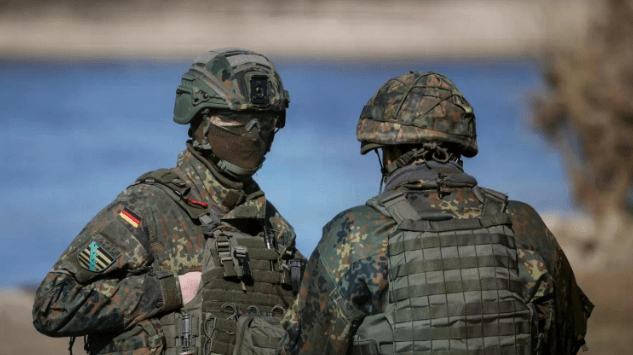Germany has officially commenced its first permanent foreign troop deployment since the Second World War, with a 5,000-strong armoured brigade now stationed in Lithuania.
The move is a strategic step by Berlin to reinforce NATO’s eastern flank amid growing security concerns stemming from Russia’s ongoing war against Ukraine.
The newly established 45th Armoured Brigade was formally activated on Tuesday during a ceremony held just outside Vilnius. A temporary headquarters has been set up, the brigade’s crest unveiled, and the unit is now under the command of Brigadier General Christoph Huber.
“We have a clear mission: to ensure the protection, freedom and security of our Lithuanian allies on NATO’s eastern flank. In doing so, we also protect NATO territory — and Germany itself,” Huber told dpa, the German press agency.
Germany committed to the long-term deployment in 2023, marking a significant departure from decades of defence policy that had previously avoided the permanent stationing of combat troops abroad.
The brigade is expected to be fully operational by 2027, eventually moving into a new military base currently under development in Rūdninkai, around 30 kilometres south of Vilnius. Until the complex is completed, German troops will operate from temporary facilities in Lithuania.
This deployment will include not only frontline combat forces but also essential support units, such as a medical centre, signal company, and command support teams, all distributed across several strategic locations.
Currently, approximately 150 German troops are stationed in Lithuania, with that number projected to grow to 500 by the end of the year.
For NATO, the deployment underscores a major shift toward deterrence by forward defence, reinforcing the alliance’s presence along its eastern borders.
For Germany, it represents a pivotal change in its military posture, moving away from its reputation as a hesitant military actor and embracing a more assertive role within the alliance.
Lithuania, which borders both Russia’s Kaliningrad exclave and Belarus, views the German presence as crucial to its national security.
The ongoing conflict in Ukraine has turned the Baltic region into a critical front line, and Berlin’s commitment signals NATO’s resolve to maintain a strong and enduring defensive presence in the region.
In related developments, Ukraine has entered a new phase of ceasefire negotiations, highlighting the broader diplomatic efforts unfolding alongside military movements on NATO’s eastern borders.






